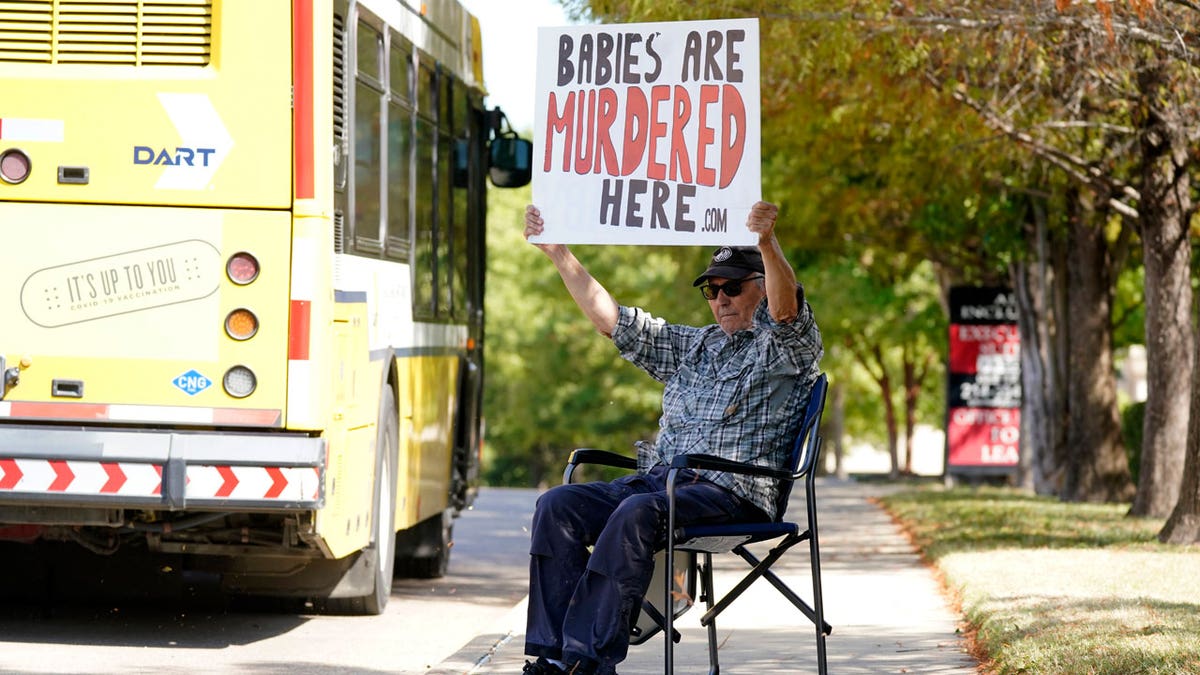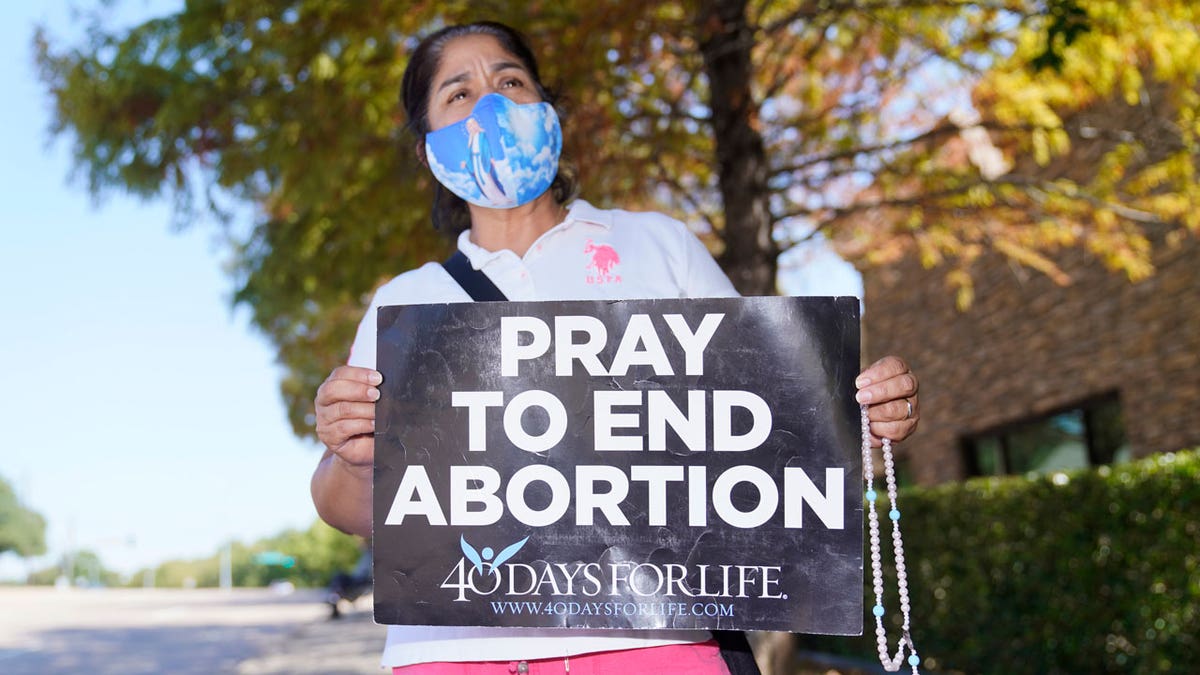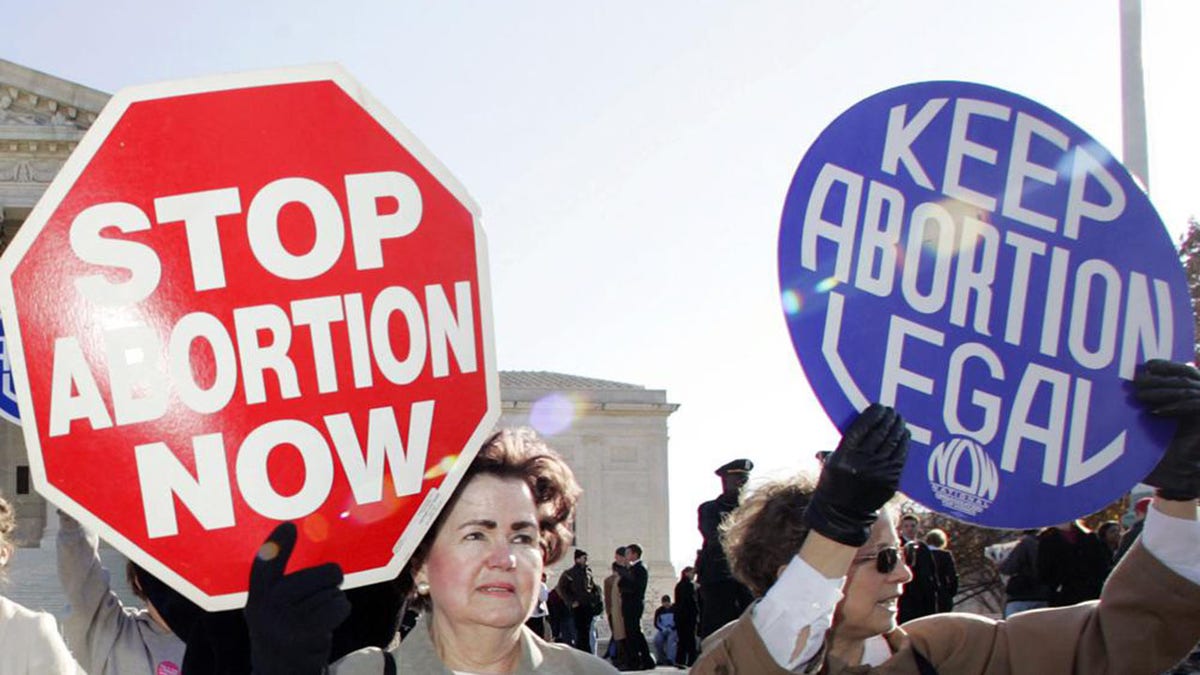Supreme Court to take up Mississippi abortion law that targets Roe v Wade
Carrie Severino, president of Judicial Network, says the Mississippi law 'clearly' contradicts Roe v. Wade and discusses the possible implications of the case.
The future of abortion rights in the U.S. is now before the Supreme Court, where the 6-3 conservative majority may be poised to strike down or severely limit the impact of the landmark Roe v. Wade decision legalizing the controversial procedure.
An upcoming case from Mississippi represents arguably the court's most dramatic opportunity to overturn its own precedent since Brown v. Board of Education.
That may be because few social issues draw as much personal and political passion as the constitutional right to abortion, with the nationwide legal fights over its access dating back nearly 50 years.
The nine justices on Wednesday morning will hear a challenge to a government ban on abortions after 15 weeks
At issue: whether any state law that prohibits pre-viability elective abortions is unconstitutional. Mississippi officials are boldly asking the court to overturn its 1973 Roe precedent, where abortions are legal nationwide until about the 24th week-- the point of viability where the fetus can survive outside the womb.

David Trujillo holds a sign a bus drives by on the street in front of a building housing an abortion provider in Dallas, Thursday, Oct. 7, 2021. A federal judge has ordered Texas to suspend a new law that has banned most abortions in the state since September. The order Wednesday by U.S. District Judge Robert Pitman freezes for now the strict abortion law known as Senate Bill 8. (AP Photo/LM Otero) (AP Photo/LM Otero)
WILL THE SUPREME COURT OVERTURN ROE V. WADE? POSSIBLE OUTCOMES FOR THE UPCOMING ABORTION CASE
Lower courts have blocked that and a subsequent state law banning abortion after six weeks.
The state's only remaining abortion clinic, backed by the Biden administration, has asked the court to uphold Roe's core holding, and to invalidate the Mississippi statute. It was enacted in 2018, but lower federal courts have blocked its enforcement.
Jackson Women’s Health Organization-- the state's sole abortion clinic currently in operation-- only performs surgical abortions up to 16 weeks of pregnancy. In legal briefs, the medical facility says about 100 abortions are done annually after the 15th week, the state cutoff.
JWHO's director says the issue is more than just a medical debate, and that she is bracing for the worst from the Supreme Court.
"Abortion is absolutely a racial and economic justice issue," said Shannon Brewer, in a recent New York Times op-ed. "The [restrictive state] laws are inherently racist and classist; they keep Black and Brown people down. And the research is clear: A woman who is denied an abortion is more likely to live in poverty even years later."
But the state has asked the high court to strike down its precedent, in the name of states' rights.
"The Roe decision shackles states to a view of facts that is decades old, such that while science, medicine, technology, and culture have all rapidly progressed since 1973, duly enacted laws on abortion are unable to keep up," said Lynn Fitch, Mississippi Attorney General. "The Supreme Court can return decision-making about abortion policy to the elected leaders and allow the people to empower women and promote life."
A History of Controversy
Bans on abortion in the United States began early in the 19th century. Connecticut in 1821 became first state to outlaw them, specifically after "quickening," the time in the pregnancy when the woman starts to feel fetal movements.
The laws were designed primarily to protect women from dangerous "back alley" abortions. These laws were also ambiguous, given the Victorian moral code that stifled debate on so personal a subject as unwanted pregnancies. Since then, movements have come and gone to relax the restrictions or to give women more choice, but such efforts mostly went nowhere.

Maria Peña holds a rosary and sign out outside a building housing an abortion provider in Dallas, Thursday, Oct. 7, 2021. (AP Photo/LM Otero) (AP Photo/LM Otero)
US ABORTION SEE AN UPWARD TREND AFTER DECADES OF DECLINE
It was not until the 1960s that an organized movement was launched to ease the laws regulating abortions. Medical technology had advanced to the point where they could be done safely by trained medical staff in clean, professional environments. By the early 1970s, a number of states had changed their laws, though most did so in very limited ways.
The legal fights culminated with Roe v. Wade, the court's 7-2 decision giving women a qualified constitutional right to abortion during most of the pregnancy. The court, in fact, heard two cases around the same time: Roe (aka Norma McCorvey, who later become an abortion opponent), which challenged a Texas law banning abortions except to save the woman's life; and Doe v. Bolton, involving a Georgia law requiring that abortions be performed only in accredited hospitals and only after a review by a hospital staff committee and an exam by two doctors other than the woman's physician.
The Roe and Doe rulings affected laws in 46 states.
For the justices, Roe reflected earlier cases involving the right to privacy. That "right," wrote Justice Harry Blackmun in the main opinion for the court, is "broad enough to encompass a woman's decision whether or not to terminate her pregnancy."
But the ruling was a qualified one, and that fact has been used by abortion opponents in their efforts to narrow the scope of other abortion provisions. Blackmun noted that the state's "important interests in safeguarding health, maintaining medical standards, and protecting potential life" are compelling enough to justify regulation "at some point in pregnancy."
The abortion issue has been revisited several times since Roe, most famously in Planned Parenthood v. Casey (1992).
That 5-4 decision reaffirmed the heart of Roe while giving states the power to regulate procedures so long as they did not impose an "undue burden" on a woman's right to abortion. The standard: undue burden exists if "the purpose and effect is to place substantial obstacles in the path of a woman seeking an abortion before the fetus attains viability." The ruling left supporters on both sides of the issue dissatisfied, feeling it was ambiguous.
Precedent On Point
In the nearly three decades since, the high court had shied away from directly confronting the Roe precedent. But abortion opponents-- including those in state legislatures-- saw the appointment of three justices by President Trump as an opportunity to aggressively pursue abortion restrictions, designed to test the court's fealty to its earlier rulings.
NEW AD FEATURE ABORTION SURVIVOR AS SUPREME COURT HEADS TOWARD ORAL ARGUMENT IN DOBBS
They cheered when the high court agreed to separately review restrictions from Mississippi and Texas.
The views of Justices Neil Gorsuch, Brett Kavanaugh, and Amy Coney Barrett will all be key to the outcome in both cases.
Pre-viability abortion bans were enacted in 12 states since 2019-- Alabama, Arkansas, Georgia, Kentucky, Louisiana, Montana, Missouri, Ohio, Oklahoma, South Carolina, Utah and Tennessee-- and all of them struck down by lower federal courts.
But Texas' six-week ban was allowed to go into effect, in a late-night Supreme Court order in September. It becomes the most restrictive abortion law currently enforced, and has all but ended abortions being performed in Texas.
In doing so, the justices earlier this month held oral arguments, not on the Texas law's constitutionality-- but the "gateway" issue of over how and whether abortion providers or the Justice Department can mount federal court challenges to the law.
Its unique enforcement structure has sharply divided the courts over procedural questions. That is because enforcement is handled not by state officials, but by private citizens-- from anywhere in the country-- who can be deputized or outsourced to sue Texas abortion providers, and those would facilitate the procedure. Those empowered to sue can get a "bounty"-- as Chief Justice Roberts put it -- for a minimum of $10,000 in damages.
A decision in that fast-tracked Texas case is still pending, but activists on both sides see it as an important preview of how the conservative high court majority will confront the head-on challenge to Roe that the Mississippi appeal now presents.
Respect for court precedent-- known as stare decisis-- will be a key part of the 70-minute scheduled oral arguments.
"This Court has never recognized— and then taken away— a fundamental right that millions of Americans have relied on to determine the course of their lives and participate as equals in American life," said Elizabeth Wydra, president of the left-leaning Constitutional Accountability Center, in a court brief. "The Constitution does not permit this severe denial of liberty, dignity, and autonomy."

FILE - In this Nov. 30, 2005 file photo, an anti-abortion supporter stands next to a pro-choice demonstrator outside the U.S. Supreme Court in Washington. The new poll from The Associated Press-NORC Center for Public Affairs Research finds 61% of Americans say abortion should be legal in most or all circumstances in the first trimester of a pregnancy. However, 65% said abortion should usually be illegal in the second trimester, and 80% said that about the third trimester. (AP Photo/Manuel Balce Ceneta) (AP)
But Carrie Severino, president of the right-leaning Judicial Crisis Network, said the issue of state discretion to pass abortion restrictions will also be a key talking point for the court conservatives.
"The Constitution doesn't say anything one way or the other about abortion, which means it's left to the states," Severino told Fox News. "There's no way for them [justices] to get away from dealing with the real underlying question: is abortion really in the text of the Constitution itself? And if not, then why are we as judges making these calls, and why don't we leave it to America's representatives?"
Many legal analysts suggest the court may not be quite ready to strike down Roe it its entirety-- but could dramatically blunt its impact in the Mississippi case, with more constitutional challenges in the near future..
The opportunity for a sweeping pivot on abortion -- at a time when the court's own reputation and legitimacy is threatened -- could be tempered by an unpredictable, cautious court that has shown it is not always eager to speak along sharp ideological lines. That may produce split rulings, with uncertain lasting impact.
"I'm sure that the chief justice would rather go fairly slowly. That tends to be his inclination in these situations," said Paul Smith, a Georgetown University law professor and appellate attorney who has argued frequently before the justices. "But there will be some justices who are impatient to get to the final determination of the validity of Roe. I could imagine a situation where you have three liberals saying those should be upheld; three saying we don't need to address that question yet; and three saying it obviously should be overruled."
Public Perceptions
More than 90% of abortions in the U.S. take place in the first 13 weeks of pregnancy, according to the Centers for Disease Control and Prevention.
A Fox News poll out in late September showed a large majority of Americans favor keeping Roe as the law of the land, 65-percent. That includes for the first time in our survey, a majority of Republicans. Just 28-percent want the ruling overturned.
But there is an even split-- 49-percent each-- on whether abortion should be legal.
FOX NEWS POLL: A RECORD 65 PERCENT FAVOR KEEPING ROE V. WADE
Other surveys in recent weeks have shown public confidence in the Supreme Court at historic lows, over whether the American people trust the justices to act in country's best interests. Some legal commentators say a sweeping ruling on abortion-- however it turns out-- is sure to further fracture the judiciary's reputation in increasingly partisan times.
An expected court ruling in summer 2022-- in the midst of the congressional midterms-- is sure to heighten the political tensions.
Handicapping how this bench will rule on abortion might start with a look back at what some of the justices have said on the issue.
The court's strongest proponent for undermining abortion precedent may be the senior Associate Justice Clarence Thomas.
He strongly dissented in the 1992 Casey decision, which upheld the right to abortion, and has consistently held those views over the years. In a 2000 case he called Roe "grievously wrong."
"Abortion is a unique act, in which a woman's exercise of control over own body ends, depending on one's view, human life or potential human life," he wrote. "Although a State may permit abortion, nothing in the Constitution dictates that a State must do so."
Many abortion opponents hope at the very least, the court will give individual states wider discretion to regulate abortion.
CLICK HERE TO GET THE FOX NEWS APP
But Justice Elena Kagan, one of the court's three left-leaning members, was playing for the long-term, when during the November 1 arguments in the Texas abortion case, she warned her colleagues that striking down Roe could have sweeping unintended consequences on other hot-button issues.
"We would live in a very different world from the world we live in today. Essentially, we would be inviting states, all 50 of them, with respect to their un-preferred constitutional rights, to try to nullify the law that this Court has laid down as to the content of those rights," she said. "We would be like: you're open for business. There's nothing the Supreme Court can do about it. Guns, same-sex marriage, religious rights, whatever you don't like, go ahead."
While Roe's impact is now in the judicial crosshairs, its legacy will likely be felt in other areas too. That decades-old opinion opened and expanded the debate on women's rights, sexuality, healthcare, and medical decisions. Issues like cloning, stem cells, and fetal research have become part of the national lexicon. Whatever the high court decides, the fight over abortion rights will be turning a new chapter, and mark only the beginning of many political battles to come.
The Mississippi case is Dobbs v. Jackson Women's Health Organization (19-1392).





